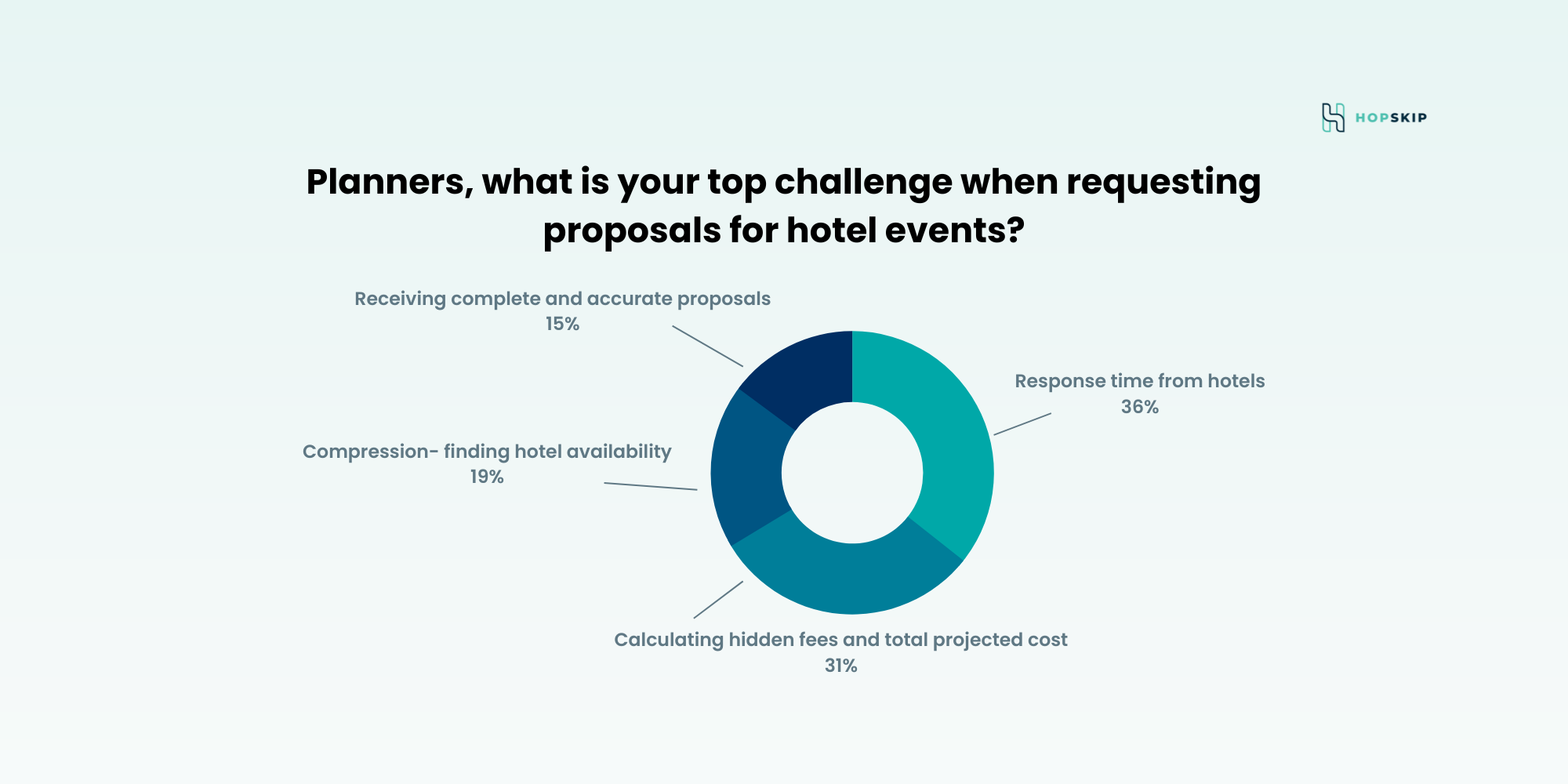Top Planner Challenges: Hotel Response Time, Clarity and Calculating Fee's
Speed of response and clarity of fees in hotel proposals are the two biggest challenges planners face today. Learn how to overcome these challenges today!

Almost two-thirds of meeting planners said when looking for a hotel to host their next meeting or event, the hotel’s speed of response and clarity of fees in the hotel proposal are the two biggest challenges they face. In this blog post, we’ll dive into what each challenge means and how to overcome them.
Problem:
Over one-third of meeting and event planners say their requested hotel’s response time is their most significant pain point today. Hotel response time is the amount of time it takes for a hotel to respond to the meeting planner’s request for a proposal (RFP). This can be a challenge when planners need to book a meeting quickly or have pressure from their clients to turn around options quickly. Today, planners may have to wait weeks for a response from some hotels, which can delay the planning process.
Solution:
But what if there was a way to get responses back in hours, not weeks? With HopSkip, you can do just that. HopSkip connects planners with over 100,000 hotels that can provide you with clear, complete, and competitive hotel proposals hotel proposal, customized for your meeting or event, so you can get back to planning your event.
Problem:
Calculating miscellaneous fees is another challenge when booking meetings at hotels. Hotel proposals often include expenses, such as service charges or taxes, attrition, Wi-Fi, resort fees, etc., that can add up quickly.
Meeting planners need to be able to calculate these fees accurately to budget correctly for their event, and planners need to be aware of these fees before signing any contracts, so they can make sure they’re staying within their budget.
This can be extremely frustrating, especially when budgeting for your event. So, what can you do to avoid hidden fees?
Solution:
First, always ask the hotel for a proposal that outlines all the associated costs. It’s important to ask questions and get all the details in writing. By being clear about what is included in your proposal, you can avoid any surprises when it comes time to sign your event contract.
Conclusion:
Meeting planners are the backbone of the event industry. They are responsible for booking venues, catering, and all other aspects of an event. As such, they need to be able to calculate these fees accurately to budget correctly for their event, and it’s vital for planners to be aware of these fees before signing any contracts, so they can make sure they’re staying within their budget.
By understanding these challenges, meeting planners can better plan for their next event and ensure that they book the best hotel for their next meeting. That’s where HopSkip comes in. With HopSkip, planners can request proposals from over 100,000 groups and meetings hotels. Compare projected cost and forecast spending across dozens of proposals and book their meetings or event within days versus weeks.
Want to see for yourself? Sign up for a free trial of HopSkip here! (no credit card required)